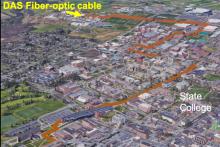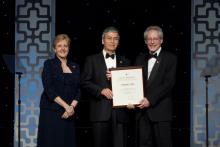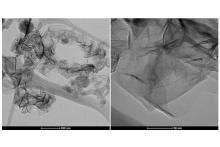A new process for creating thermally regenerative ammonia batteries improves their stability and affordability and may help address the country’s growing grid-scale energy storage problem, according to a team led by Penn State researchers.
Several faculty members in the College of Earth and Mineral Sciences received non-tenure-line faculty promotions at Penn State, effective July 1, 2022.
A new, environmentally friendly, single-step process has been developed to convert carbon dioxide into higher hydrocarbons using plasma, according to scientists and engineers.
Increasingly aggressive strategies are needed to reduce current and future carbon emissions and proactively remove carbon-based heat-trapping gasses that have been emitted to date. A panel of experts will discuss this topic during the webinar “Getting to negative: strategies, ethics and co-benefits.”
A panel of energy experts from Penn State and industry will discuss how energy systems are currently designed to be resilient to extreme weather events, and how they may need to be designed in the future. The panel discussion, which is free and open to the public, will be broadcast at 2 p.m. EDT on Monday, April 12 via Zoom.
Scientists are using fiber-optic distributed acoustic sensing (DAS) technology to turn existing telecommunication infrastructure that is already installed underground into a valuable resource for monitoring ground vibrations.
A single-step, plasma-enhanced catalytic process to convert sulfur dioxide to pure sulfur from tail gas streams may provide a promising, more environmentally-friendly alternative to current multistage thermal, catalytic and absorptive processes, according to scientists at Penn State.
Chunshan Song has announced that he will step down as director of the Penn State College of Earth and Mineral Sciences (EMS) Energy Institute (EI) and will be leaving Penn State, effective June 30.
Penn State's College of Earth and Mineral Sciences recognized exceptional students and faculty for their academic excellence, service and leadership during its annual Wilson Awards Presentation.









